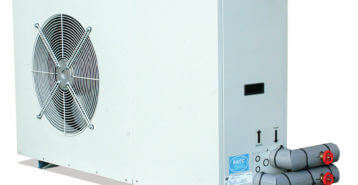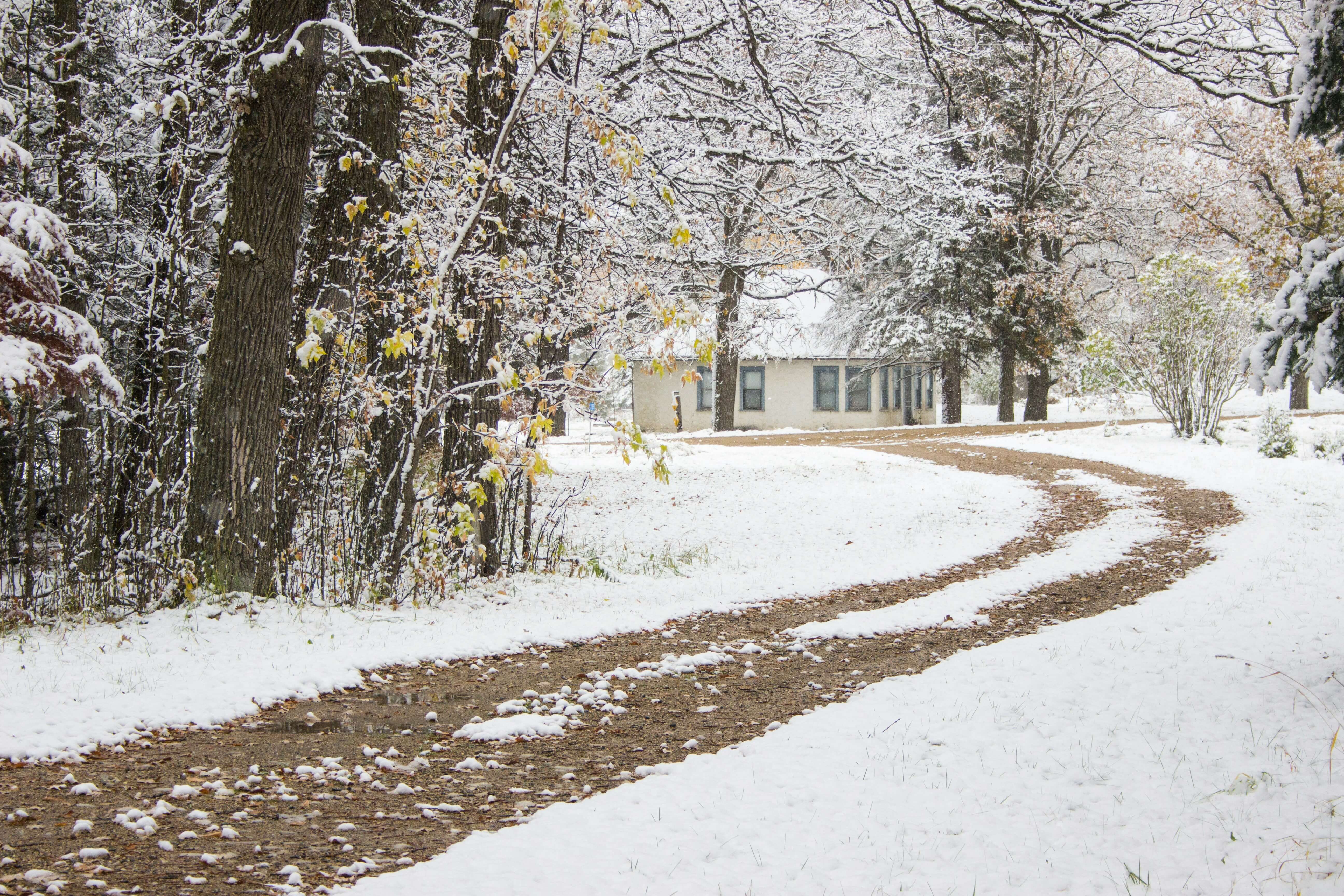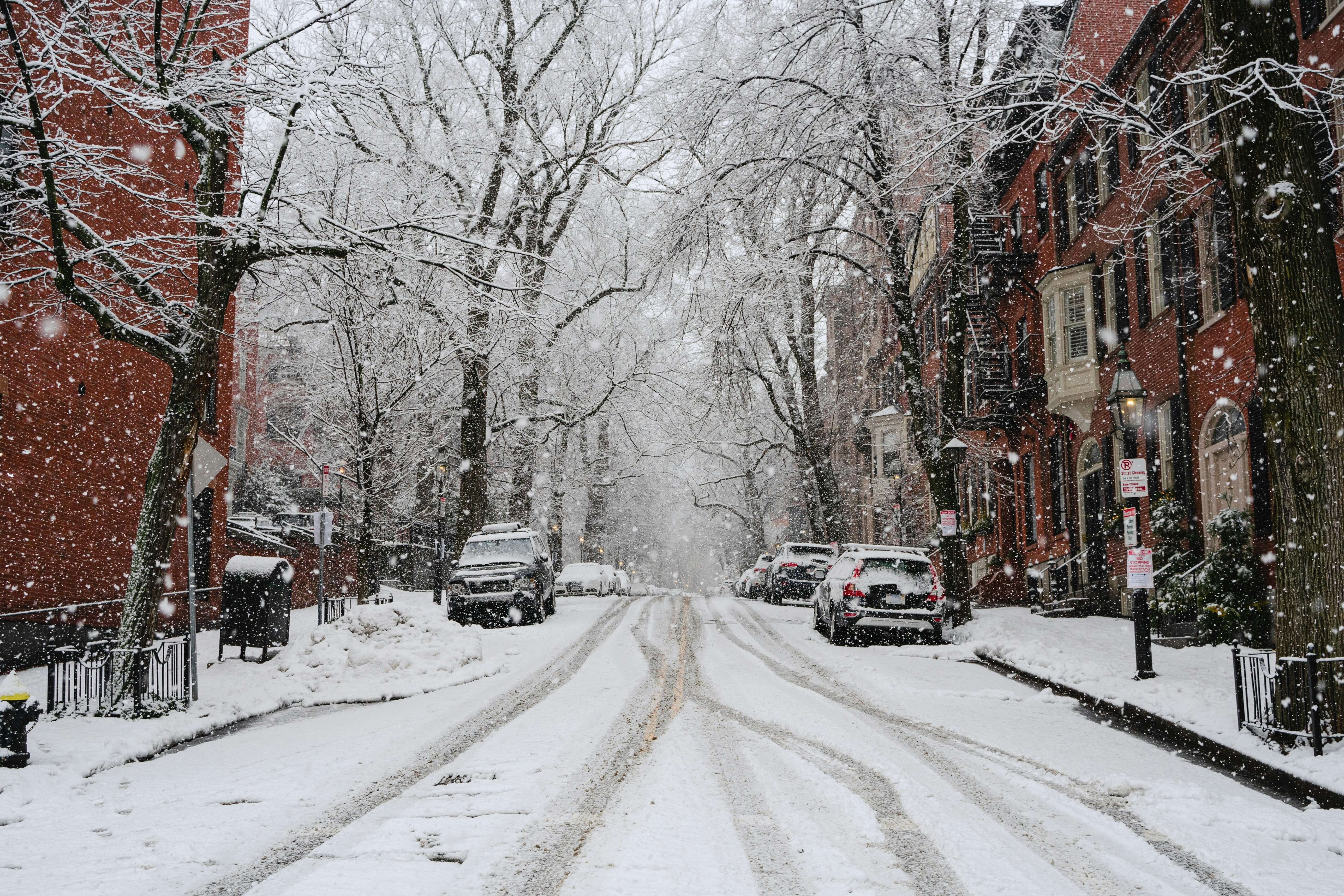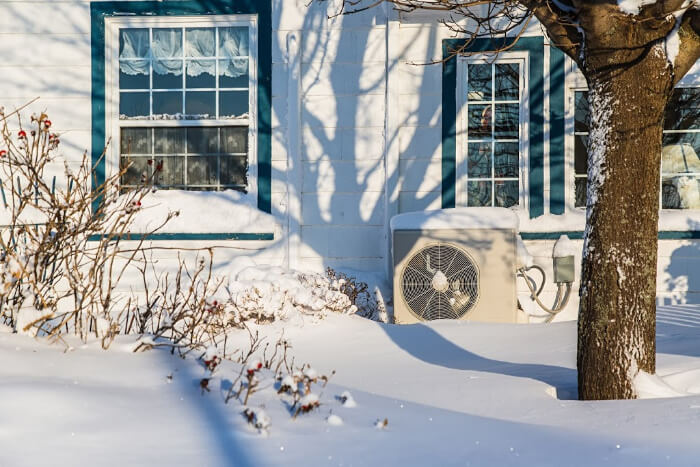Geothermal Heat Pump Cost in 2026
For most homes in the U.S., you’ll pay between $20,000 and $40,000 total for geothermal heat pump installation. If you have yard space for trenches, costs are usually lower. Small areas often need deeper vertical drilling, which costs more but uses less yard space. On especially complex sites, totals can approach or exceed $50,000, but that is not typical.
What your geothermal heat pump cost includes:
- Indoor Unit (the Heat Pump): $4,500 to $9,500
- Ground Loop and Piping: $8,000 to $24,000 (This refers to the buried piping that lets a geothermal heat pump move heat to and from the earth.)
- Duct Updates: $2,000 to $8,000
- Electrical, Permits, Setup, and Testing: $1,500 to $5,500
How Much Does It Cost to Put Geothermal in a 2,000-Square-Foot House?
You’ll pay around $20,000 to $40,000 total in most cases. Homes that require vertical drilling or have difficult digging conditions can run higher, occasionally into the $45,000 to $50,000+ range.
Geothermal Heating and Cooling Costs
Geothermal heating uses steady ground temperatures, so it’s efficient year-round. Your bill will depend on local power rates, weather, and your thermostat settings. The table below shows how much you’ll pay in cold-weather months, on average, to heat your home with a geothermal heat pump.
| Month | Northern U.S. | Midwest | Mid-Atlantic | South |
|---|---|---|---|---|
| January | $120 to $220 | $100 to $190 | $80 to $160 | $50 to $110 |
| February | $100 to $200 | $90 to $170 | $70 to $140 | $45 to $100 |
| March | $70 to $150 | $60 to $130 | $50 to $110 | $35 to $80 |
| November | $90 to $180 | $80 to $150 | $70 to $130 | $45 to $100 |
| December | $110 to $210 | $95 to $180 | $80 to $150 | $50 to $110 |
Cooling months tend to cost less than heating months because geothermal is so efficient during summer.
Geothermal Heat Pump Costs by Size
System size is the amount of heating and cooling your home needs. Your contractor should do a home sizing calculation (sometimes called a Manual J) so you do not buy a system that is too big or too small.
4 Ton
- Total Price: $20,000 to $32,000
- Common for well-insulated homes around two thousand square feet with room for trenches.
5 Ton
- Total Price: $24,000 to $38,000
- Good for larger heating or cooling needs, hotter summers, or small lots that require vertical drilling.
10 Ton
- Total Price: $45,000 to $70,000
- This size is used for large custom homes or light commercial projects. The cost depends on digging needs.
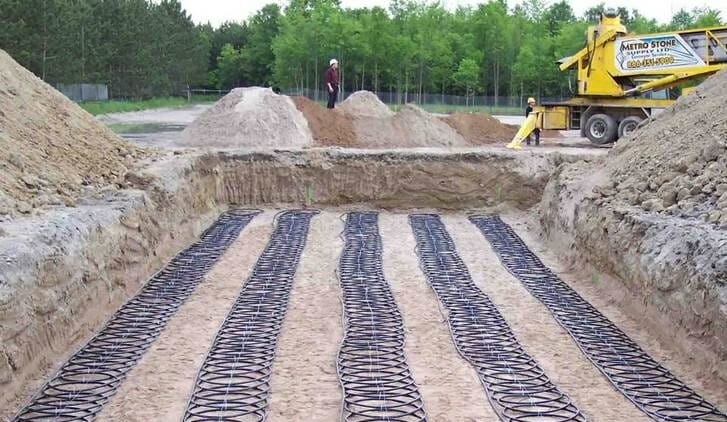
What Else Can Raise or Lower Your Cost?
- Type and Depth of Ground Loops: Trenches are about 4 to 6 feet deep. Vertical bores can be 100 to 400 feet each.
- Soil and Rock: Solid rock is harder to drill. Sandy soil may need extra support.
- Equipment Location: Longer pipe runs between the outdoor loop and indoor unit add time and materials.
- Ducts and Vents: Leaky or undersized ducts can hurt performance and may need work.
- Comfort Features: Variable-speed fans and smart thermostats improve comfort and efficiency.
- Permits and Inspections: Local rules and required testing add to the schedule and the budget.
What Is a Geothermal Heat Pump?
A geothermal (ground-source) heat pump uses buried piping to move heat between your home and the earth. In winter, it pulls heat from the ground to warm your home. In summer, it moves heat into the ground to keep you cool. The indoor unit connects to your existing ducts, or to radiant heating equipment.
See other heat pump types and their costs:
Common loop choices and typical total price ranges:
| Loop Type | Typical Total Price | When It Makes Sense |
|---|---|---|
| Horizontal (closed loop) | $15,000 to $30,000 | Plenty of yard space for trenches; usually the lower-cost option. |
| Vertical (closed loop) | $20,000 to $45,000 | Small lots or rocky sites; less yard disruption, higher drilling cost. |
| Pond or lake (closed loop) | $15,000 to $30,000 | A nearby, suitable body of water is available. |
| Open loop (well water) | $18,000 to $35,000 | Clean, abundant groundwater and local approval. |
Remember that ground loops are buried piping that facilitates the moving of heat to and from the earth.
Geothermal Heat Pump Installation Process
- Plan and Measure: The contractor sizes the system for your home, selects the loop type, and designs the layout.
- Dig or Drill: Crews install the underground piping, then run the pipes to your home.
- Set the Indoor Unit: They place the heat pump inside and connect it to the loop piping.
- Hook up Ducts and Power: They connect to your ducts (or radiant equipment), run electrical, and set the thermostat.
- Start up and Test: The system is flushed, checked for leaks, and tested to be sure it heats and cools properly.
- Inspect and Review: Local inspections are completed, and you get a walk-through and warranty information.
Why hire a pro: Geothermal work involves specialized digging or drilling, pipe fusion, fluid handling, and careful start-up. A qualified installer protects performance, longevity, and warranty coverage. Modernize can connect you with pre-vetted local pros.
How Deep Do You Have to Dig for a Geothermal Heat Pump?
- Horizontal Loops: Usually 4 to 6 feet deep in long trenches.
- Vertical Loops: Usually 100 to 400 feet deep per bore, with several bores tied together.
How Long Does It Take for Geothermal to Pay for Itself?
Many homes see a payback in about 5 to 12 years. You will save faster if you currently use propane, oil, or electric baseboards, or if your home has high heating and cooling needs. Local rebates or utility programs can shorten payback time.
Best Rated Geothermal Heat Pumps
Choose a heat pump brand your local contractor supports well, with parts and service nearby. These equipment-only price ranges help you compare models. Remember, though, your total price depends on the loop work and your site.
| Brand | Typical Indoor Unit Price | What to Know |
|---|---|---|
| WaterFurnace | $5,500 to $9,500 | Premium efficiency, very quiet, strong dealer network. |
| ClimateMaster | $5,000 to $9,000 | Broad lineup with variable-speed comfort features. |
| Bosch (FHP) | $4,800 to $8,800 | Ducted and hydronic options; reliable performance. |
| GeoComfort / Hydron | $5,000 to $9,000 | High efficiency with strong warranties. |
| Carrier / Bryant Geothermal | $5,200 to $9,200 | Wide service network and solid support. |
Ready to explore geothermal? Start with a sizing calculation for your home, a look at your yard or drilling options, and two to three written, itemized quotes. Modernize can connect you with pre-vetted geothermal contractors for designs, timelines, and clear pricing.
Compare top-rated HVAC pros in your area.
Read real homeowner reviews, explore qualifications, and view promotions. Modernize makes it easy to browse professionals and find one that will be perfect for your project.






